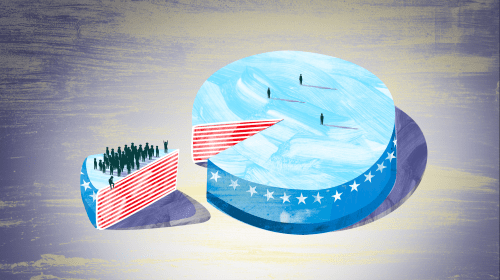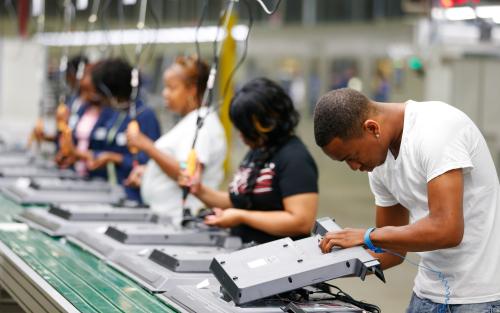This piece originally appeared in the Harvard Business Review, as part of their 5-Part Series: Democracy Under Attack, on March 11, 2020.
Capitalism and democracy absolutely need each other to survive, but right now it is democracy that is most threatened.
Capitalism is the right way to organize an economy, but it’s not a good way to organize a society. Markets do a good job of allocating resources, fostering dynamism, and preserving individual choice, but they cannot solve climate change, too much inequality, or the plight of workers whose jobs have been destroyed by trade or technology.
When government fails to address these or other systemic problems, democracy begins to lose its legitimacy. In desperation, citizens turn to populists on the right or the left. If these leaders then prove unable to keep their promises, trust in government erodes further. Political instability begins to threaten capitalism itself.
We are now seeing that spiral in action. Dissatisfaction with democracy in the U.S. has risen by one-third since the mid-1990s and now includes about half the population, according to the Centre for the Future of Democracy at Cambridge University. It was the white working class, whose counties had been ravaged by a loss of jobs, that elected Donald Trump in 2016. Yes, his supporters had cultural anxieties (opposition to immigration in particular) in addition to economic ones, but there’s no denying the surprisingly strong county-level correlation of votes for Trump with long-term economic distress, very low employment rates, plant closings related to trade, and the location of the opioid epidemic.
Now the U.S. is in the midst of another presidential campaign and the signposts of instability are rising on the left. If Bernie Sanders wins the Democratic nomination this year, it will be clear that it is not just the working class that is fed up but also young people and progressives, who believe the system is corrupt and that only a democratic socialist can save the day. But a Sanders revolution would almost surely disappoint his voters further, since enacting most of his proposals is politically infeasible, leading to more fraying of trust in government.
Fewer than half of 18- to 29-year-olds now support capitalism. They are right that markets without guardrails do not produce a healthy society. But a government that overreaches by trying to replace the market in areas like health care or job creation will not restore that trust. This is the balancing act we face.





Commentary
Op-edDemocracy is in deeper trouble than capitalism
March 18, 2020